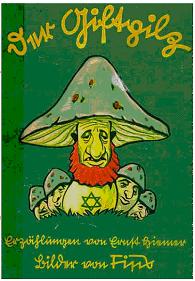Art Spiegleman
Pages 129-159
Literary Analysis
What theme or themes does the author explore in the novel? Which passages in the text connect to theme?
Throughout the book, I noticed that the Spiegleman explores various themes such as power, family, memory and past, etc. However, I will only talk about a few of them, which I feel are the ones that are not only the most important but are the ones who are greatly explored in depth.
With that being said, the first theme the author explores in the novel is Power. Power was something that was being heavily sought by the Germans, or the Nazis during the gruesome times of WWII. They wanted to conquer vast territories throughout all of Europe, due to their strong belief in nationalism and imperialism and they wanted power over everyone they didn't believe was the same as them or up to their status, rather it be social, political or economic and power over everything and everywhere. This can clearly be seen when Vladek says: “It was many, many such stories – synagogues burned, Jews beaten with no reason, whole towns pushing out all Jews – each story worse than the other" (Page 35). Since, this is when he realises that the Jews are no longer regarded as full-citizens and they are merely the victims of it all. The Nazis were stripping the Jews of all the power they had as full citizens and as one can easily tell just by knowing about the historical events the novel is connected to, it didn't just stop there.
The image selected to represent the paragraph above is a gif that shows the entrance of the Aushwitz-Birkenau concentration camp, earlier this year. It is where the Jews and everyone else whom the Nazis considered inferior and dehumanised were sent to either be worked to death, gassed or just brutally murdered. A clear example of the power they had over them at the time.
The second theme I chose to talk about is Race. During the dire and ghastly times of the second world war, the Nazis created several stereotypes for the races of people they thought inferior. There are countless examples of the stereotypes created by the Nazis for the jews we can see in Maus rather they be present in the writing of the novel itself or in the graphics. A crystal-clear example of this can be easily seen in this quote:“Well, Jew, don’t worry. We’ll find work for you!" (Page 53). Which draws on the stereotype of Jews as wealthy financiers who can’t work with their hands. As well as “In some ways he’s just like the racist caricature of the miserly old Jew.”(Page 133). Where Artie is concerned that he might be turning his father into a stereotype.
The image above represents a German children's book called "The Poisonous Mushroom". In it, we can find a story where a Jew is trying to kidnap two Aryan children, evidently drawing on to the stereotype that Jews were evil and so on so fourth.
***I did this blog post on Maus, because I felt that since I'd finished the book, I would be able to write a better literary analysis than I would for Persepolis.


No comments:
Post a Comment